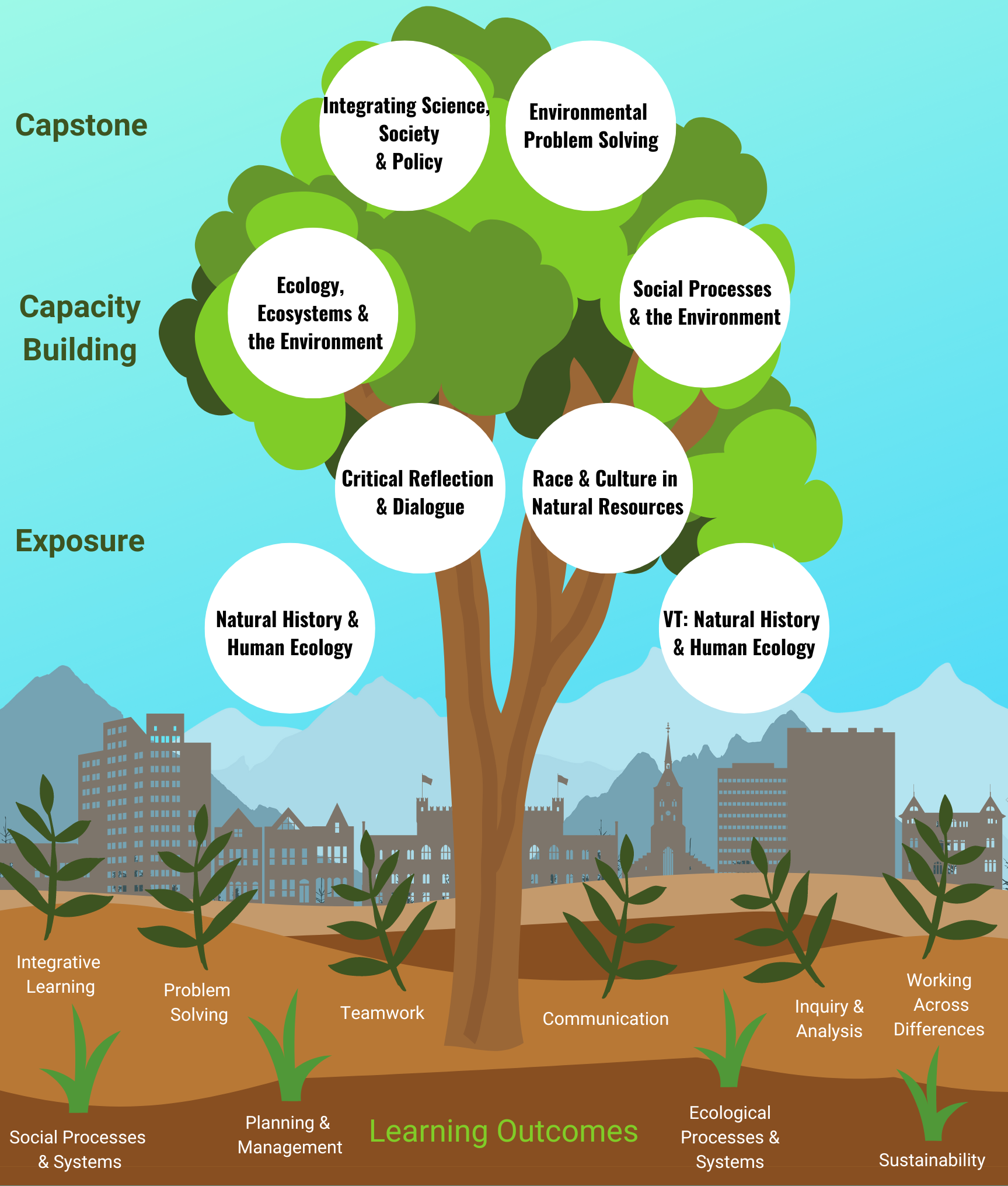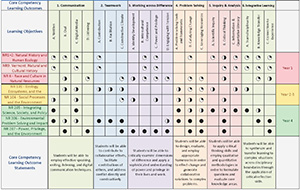 The Core Curriculum of the Rubenstein School is designed to cultivate the skills and knowledge that we believe are central to the study of natural resources and the environment. The Core Curriculum's seven required courses (25 total credits) are taken sequentially and cut across all academic programs within the School, integrating the natural and social sciences to foster a deeper understanding of complex environmental issues.
The Core Curriculum of the Rubenstein School is designed to cultivate the skills and knowledge that we believe are central to the study of natural resources and the environment. The Core Curriculum's seven required courses (25 total credits) are taken sequentially and cut across all academic programs within the School, integrating the natural and social sciences to foster a deeper understanding of complex environmental issues.
Goal Statement
By offering a scaffolded set of required core courses grounded in environmental and natural resource content, we prepare our students to successfully integrate and apply knowledge across disciplinary boundaries in their personal and professional lives. Students will embody the values central to the mission of the Rubenstein School, develop leadership and problem solving skills, participate in experiential learning, and identify areas for personal growth and continuous improvement.
Core Course Descriptions

NR 1010 + 2020 Natural History and Human Ecology
A two-semester course with introduction to dynamics of the natural world and basic concepts of biological, chemical, physical, and ecological sciences and application and interpretation of quantitative measurements. Emphasis on social/cultural perspectives and environmental history, values, and ethics with application to natural resource and environmental policy. (4 + 4 credits)

NR 1050 Critical Reflection and Dialogue
An opportunity for First-Year students to develop skills of critical reflection and dialogue through the examination of several environmental issues, and to build strong working relationships with peers and faculty. Includes nuanced, personal conversations in small and large groups, and considers disparate viewpoints and experiences. (1 credit)

NR 1060 Race and Culture in Natural Resources
Introduces the first-year student to issues of race and culture and their relevance to society, natural resources, and the environment. (3 credits)

NR 1090 Vermont: Natural and Cultural History
Introduces students transferring into the Rubenstein School to natural resources and the environment from biological, ecological, and social/cultural perspectives. This course is taken in place of NR 1010 + 1020. (4 credits)

NR 2030 Ecology, Ecosystems and Environment
Major ecological concepts and their application. Analysis of form, structure and function of organisms, populations, communities, ecosystems and landscapes. (3 credits)

NR 2040 Social Processes and the Environment
Social science theories and their application to environmental issues. Analysis of issues using theories of government, economics, and social movements. Emphasis on integrating frameworks to analyze environmental issues. (3 credits)

NR 3050 Ecosystem Management: Integrating science, society and policy
Integration of natural and social science into ecosystem management and policy. Consideration of ecosystem integrity, ecosystem degradation, human needs and values and the application of management principles within a holistic context. (3 credits)

NR 4060 Environmental Problem Solving and Impact Assessment
Group dynamics, impact assessment, risk assessment and decision making. Emphasis on the process of solving complex environmental problems, interdisciplinary team work, and the National Environmental Policy Act. (4 credits)

